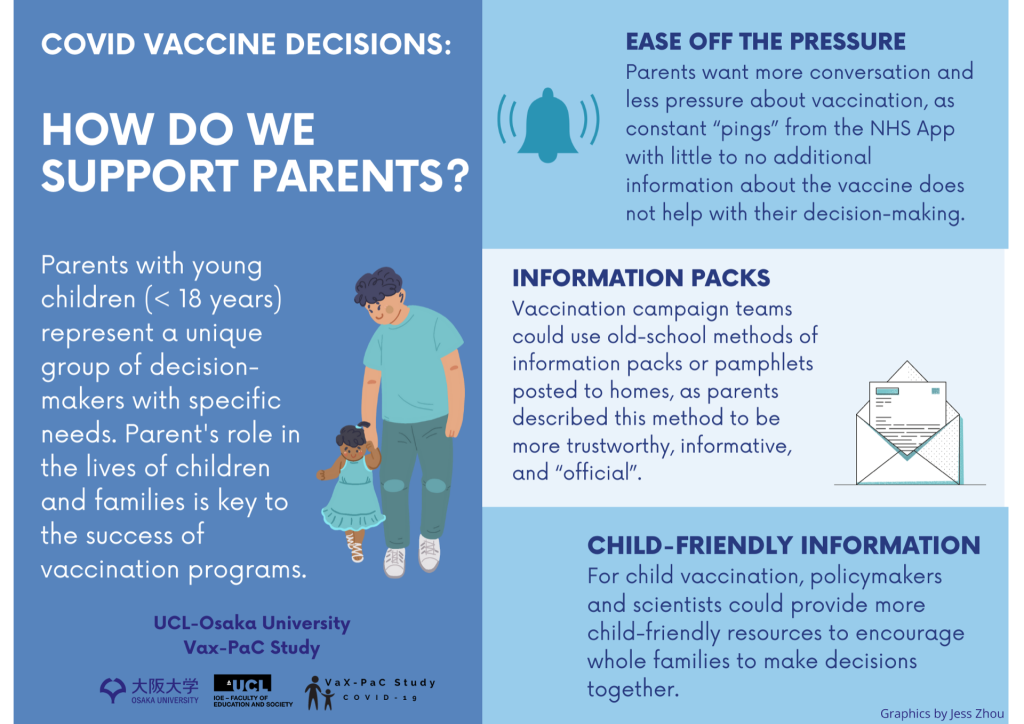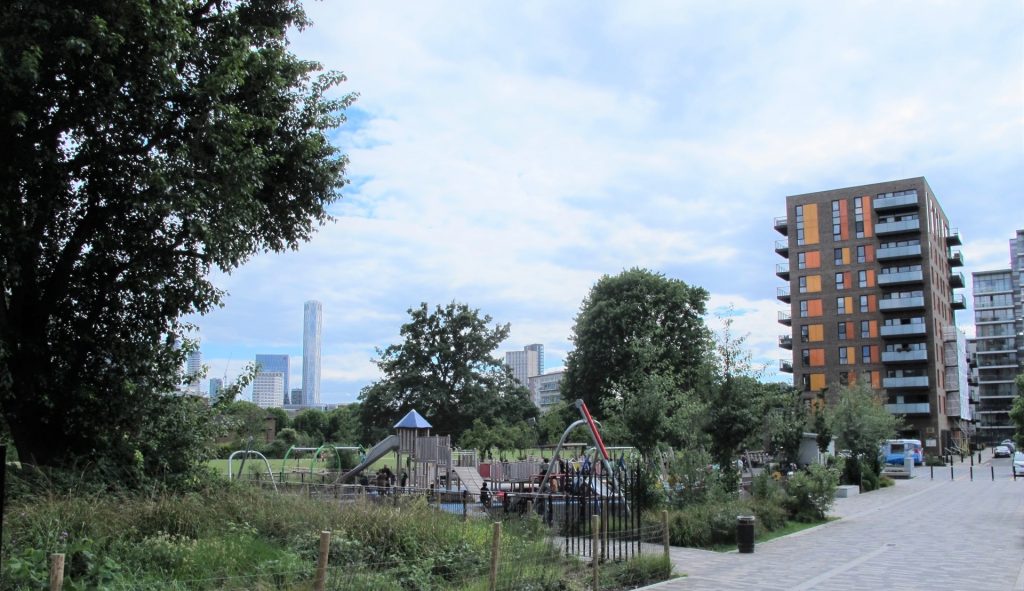Vax-Pac Study: How to have better messaging and support on vaccines for parents of under-18s
By Blog Editor, IOE Digital, on 6 October 2022
 6 October 2022
6 October 2022
By Jess Zhou and Keri Wong
The COVID vaccine roll-out has been one of the most successful vaccination campaigns in UK history, yet not everyone is on board. Studies of adults report some 15% of the population are resistant to getting vaccinated and up to 35% indicate they are hesitant towards COVID vaccines. These figures are not dissimilar to hesitancy rates for other vaccines and can have real implications for ongoing public health messaging and global pandemic intervention strategies.
Parents with children under 18 – who make vaccination decisions for themselves and for their children – form one group in need of better support because vaccine decision-making is particularly challenging. Understanding how parents made decisions about the COVID vaccination and what support they needed is important as this is a much-neglected group in COVID public health messaging.
Our UCL Vax-PaC Study led by Dr Keri Wong (PI) and Asako Miura (co-I) aimed (more…)
 Close
Close








